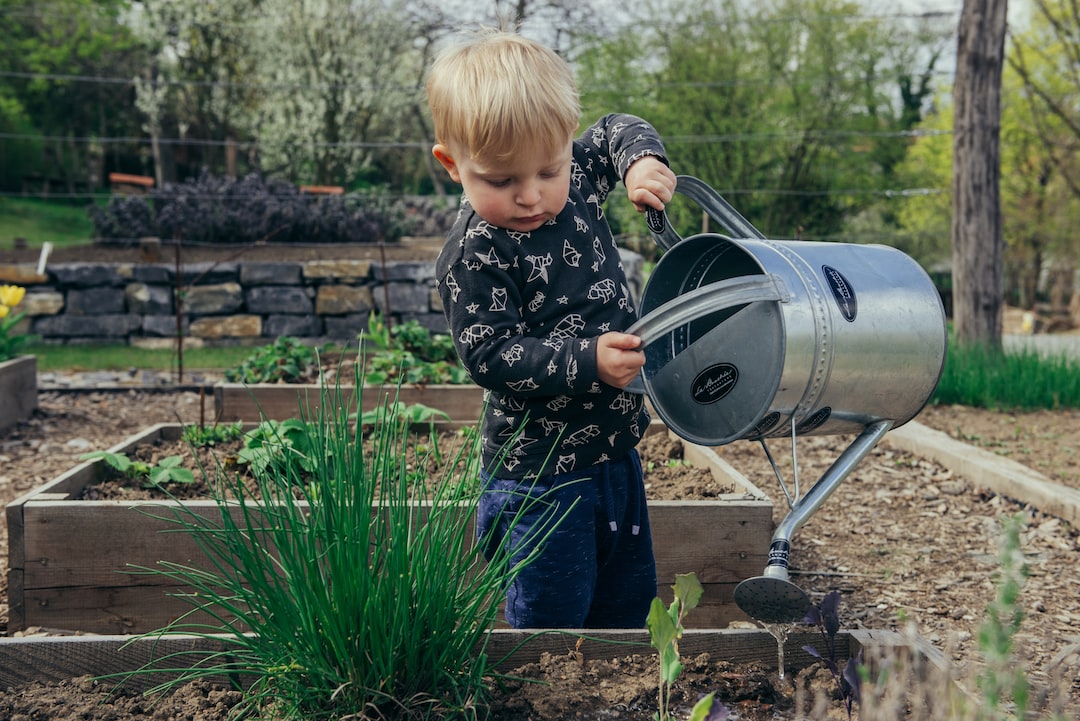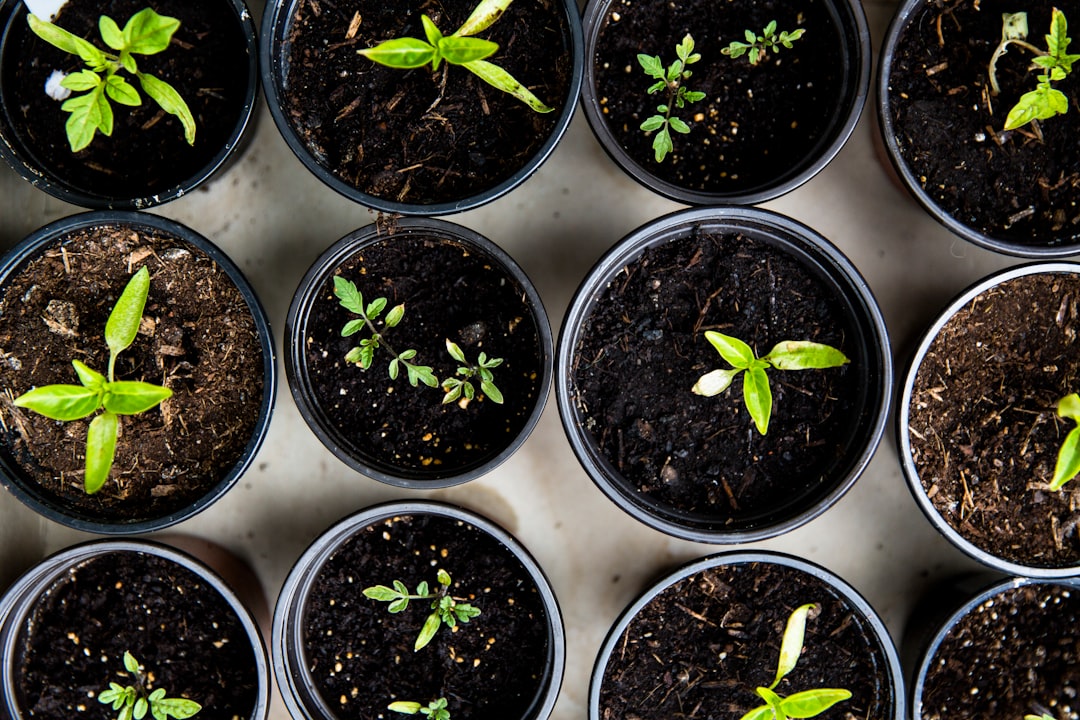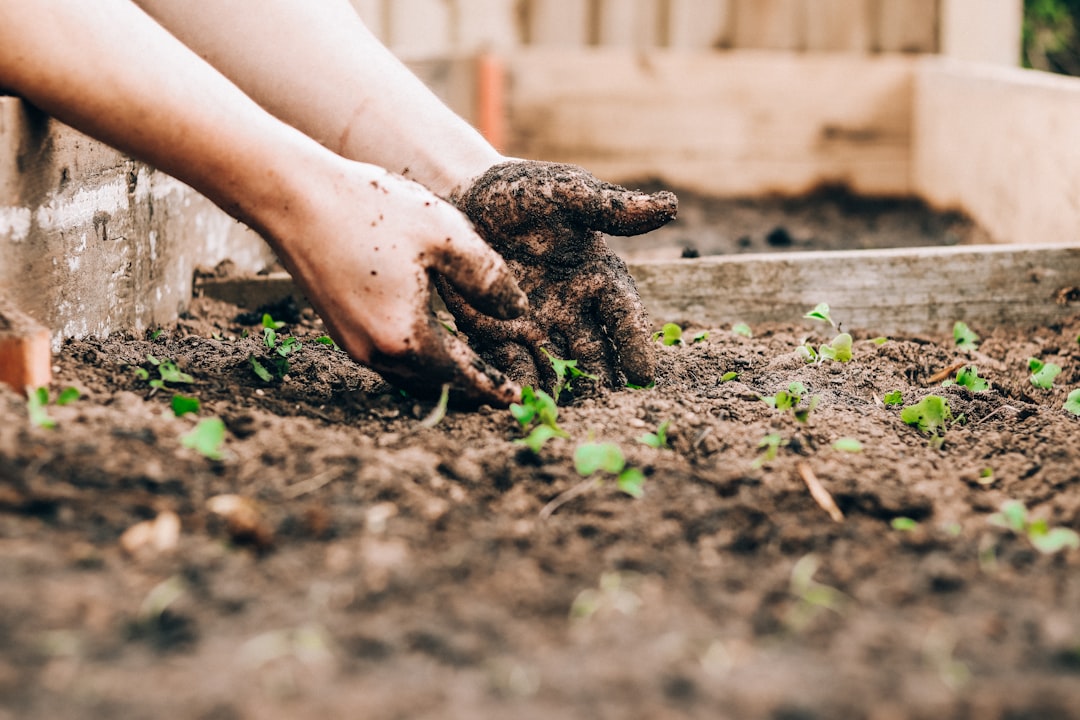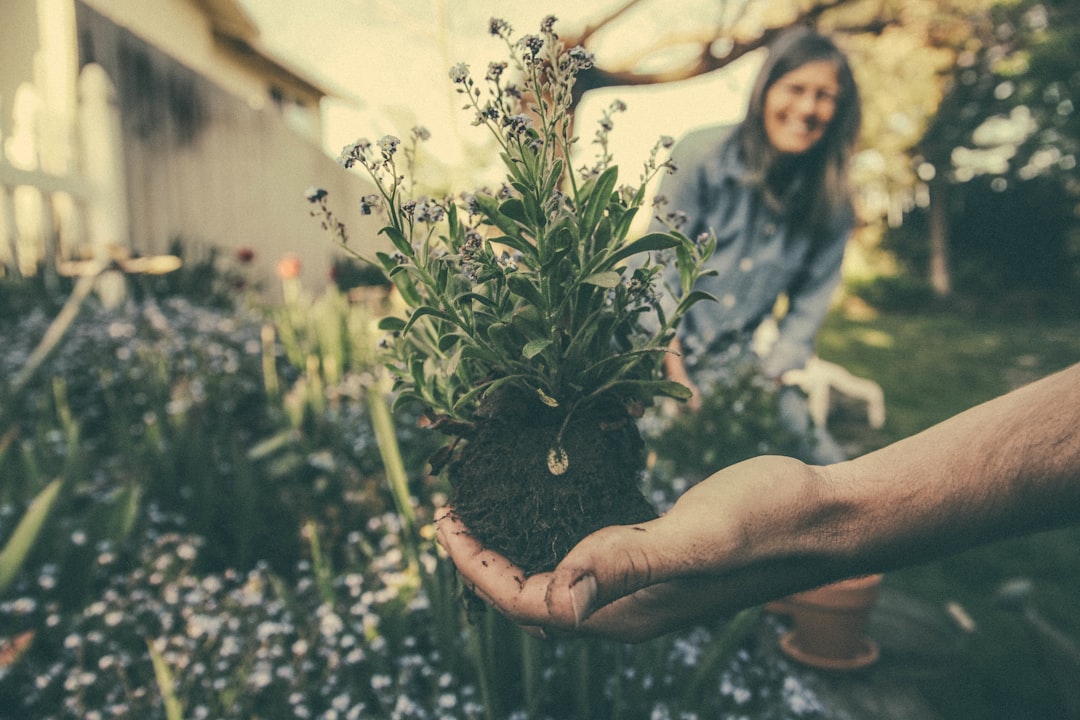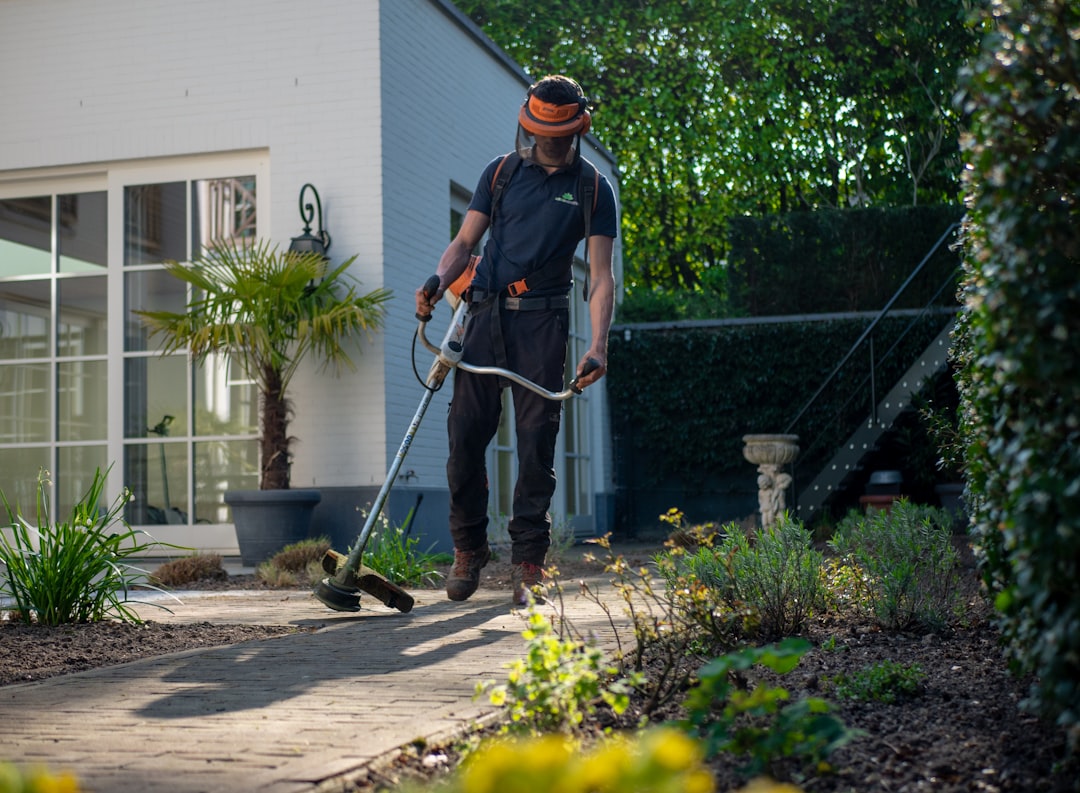Welcome to the wonderful world of gardening! Have you ever considered that gardening is not just about growing plants, but also about nurturing life and personal growth? In many ways, growing a garden is similar to raising a child. Both require patience, care, and persistence to thrive.
Just like a child, a garden is a living organism that requires love and attention to reach its full potential. The journey of creating and maintaining a garden can teach us valuable lessons about ourselves and the world around us.
In this blog post, we will explore the many ways in which gardening can offer us opportunities for personal growth and transformation. From the mental health benefits to community building and sustainability, there are endless rewards to be reaped from plant parenthood. So, let’s dig in and discover the joys of growing our own gardens!
Planting the Seeds of Self-Care: The Benefits of Gardening for Mental Health
Gardening is not just about beautifying your surroundings, but it can also be a source of mental peace and tranquility. Gardening engages your senses, awakens your creativity, and invites you to immerse yourself in nature. It is a form of self-care that can be therapeutic and healing.
Studies have shown that gardening can reduce stress, anxiety, and depression. It can also improve mood, self-esteem, and overall well-being. The act of planting a seed and nurturing it into a thriving plant can give a sense of accomplishment, purpose, and pride.
In addition, gardening allows you to connect with the natural rhythms of the seasons, and the cycles of life and death. Being around plants and flowers can be calming and uplifting. And spending time in the sunshine and fresh air can boost your energy and mood.
Perhaps most importantly, gardening is a form of mindfulness. It requires you to be present in the moment, to focus on the task at hand, and to let go of worries and distractions. In a world where we are constantly bombarded by technology and stimuli, gardening can be a much-needed break and a chance to connect with ourselves and the world around us.
So whether you have a green thumb or are just starting out, remember that gardening is not only good for your plants, but it is also good for your mental health. Take some time to garden this season and reap the benefits of this beautiful form of self-care.
In addition, gardening allows you to connect with the natural rhythms of the seasons, and the cycles of life and death.
Nurturing New Life: How Gardening Can Help Build Empathy and Compassion
Gardening is more than simply about growing plants and vegetables; it’s about nurturing new life. Tending to plants requires attentiveness, patience and care, and in doing so, gardening can help build empathy and compassion in individuals. Just like caring for a child, gardening cultivates a sense of responsibility and nurturing that is necessary for personal growth.
As gardeners, we begin to better understand how plants grow and develop, and we begin to appreciate the complexity of the natural world. Through trial and error, we learn that all living things have different requirements for growth and survival. This understanding can be applied towards our relationships with people. We start to appreciate that everyone has a different set of needs for growth and support.
Moreover, gardening provides individuals the opportunity to be immersed in nature, fostering a connection to the environment and the ecosystem. It’s a reminder of the interconnectivity between all living things and the responsibility we share in preserving and nurturing our planet. This connection serves as a reminder to approach our relationships with compassion and empathy.
In cultivating a garden, we also learn to value patience and perseverance. Success in gardening is not often immediate, but rather a continuous process. It takes dedication to continue caring for a plant even when there are setbacks, which serves as an important lesson for empathy and compassion towards ourselves and others.
The mindfulness and patience that gardening teaches us can translate to our relationships with loved ones. Instead of getting frustrated or being critical, we learn to show patience and support, recognizing that growth and development takes time. Gardening can enable us to show up for others with a softer approach, helping us build stronger and more meaningful relationships.
In summary, gardening can provide an immersive experience of nurturing, patience, and perseverance that can then be applied to relationships with ourselves and others. It helps build connections to nature, reinforcing the importance of empathy and compassion, which can go a long way in making the world a kinder and more understanding place.
This connection serves as a reminder to approach our relationships with compassion and empathy.
Building Resilience from the Ground Up: The Lessons Gardening Can Teach Us about Perseverance
Gardening is not always sunshine and rainbows. There will be times when things do not go according to plan. Seeds may not germinate, or plants may not make it through a difficult winter. But these challenges are also opportunities for growth, both for the garden and for you as a gardener.
One of the most crucial lessons gardening can teach us is resilience. Gardening requires patience, persistence, and the ability to adapt to changing circumstances. These are not just skills that make us better gardeners; they are also valuable skills that can improve our lives beyond the garden.
When we face setbacks in the garden, we must find ways to persevere. Perhaps we need to adjust our methods, try different techniques, or seek advice from fellow gardeners. We may need to experiment with different plants or find creative solutions to problems like pests or weather anomalies.
By not giving up on our garden, we are training ourselves to persevere through challenges in other areas of our lives. The lessons we learn in the garden can translate to our personal and professional lives. We learn to be patient when facing obstacles, to adapt when circumstances change, and to stay committed to our goals.
Moreover, gardening can remind us that failure is not the end of the world. In fact, failure is often a necessary step towards success. When a plant does not make it, we do not give up on gardening altogether. Instead, we learn from our mistakes, adjust our processes, and try again.
This mindset can help us manage stress and anxiety in our personal lives. When we experience setbacks or failures, we can remember that these are not permanent conditions. Instead, they are opportunities for growth and learning.
Gardening can be a powerful tool for building resilience and perseverance. By facing challenges in the garden with patience, persistence, and creativity, we learn valuable lessons that can improve our lives beyond the garden. So, whether you are a seasoned gardener or new to the craft, embrace the lessons that gardening has to offer and watch yourself grow stronger and more resilient in all areas of your life.
We learn to be patient when facing obstacles, to adapt when circumstances change, and to stay committed to our goals.
Growing Together: The Community-Building Power of Gardening
Gardening is not only an activity that benefits us individually but can also have a significant impact on the community as a whole. When we grow a garden, we not only cultivate plants but also new relationships, friendships, and connections. It creates a sense of togetherness that can bring people from different backgrounds and interests together.
Community gardens, in particular, have become increasingly popular in recent years due to their ability to bring people together. These shared spaces not only provide fresh produce but also offer a platform for individuals to connect and share knowledge. They also provide a space for people to spend time outdoors, enjoy nature, and experience the therapeutic benefits that come with gardening.
Another way gardening can bring communities together is through volunteering at local farms or participating in neighborhood beautification projects. These activities not only provide a sense of purpose and fulfillment but also encourage a culture of collaboration and shared responsibility towards the environment.
Moreover, gardening can also be used as a tool for social change, particularly in food deserts and underserved communities. Through initiatives such as urban agriculture and school gardening programs, residents can take control of their food sources and create a sustainable food system that nourishes both the body and the mind.
Gardening has the power to bring communities together and create positive change. It provides not only fresh produce but also an opportunity for individuals to connect and make a difference in their neighborhoods. As we continue to grow our gardens, we should also aim to cultivate a sense of community and work towards building a more sustainable and equitable future.
When we grow a garden, we not only cultivate plants but also new relationships, friendships, and connections.
Sowing Sustainable Habits: How Gardening Can Help Us Live More Eco-Friendly Lives
When we contemplate the environmental challenges of our time, it is easy to feel overwhelmed and even paralyzed. However, gardening can be a powerful tool for making a personal contribution to sustainability while also enjoying the tangible benefits of fresh produce and beautiful flowers.
One of the most obvious ways that gardening promotes sustainability is through the reduction of food miles. By cultivating your own fruits and vegetables, you are avoiding the transportation costs and emissions associated with importing produce from other regions or even countries. Moreover, you can avoid the packaging waste that often accompanies supermarket produce, as well as the energy required to refrigerate and store it.
But gardening can also help us develop a deeper awareness and connection to the natural world. As we tend to our plants, we learn about soil health, water conservation, crop rotation, and pest management. We may also experiment with composting, rainwater harvesting, and other techniques that reduce waste and conserve resources.
In a broader sense, gardening can inspire us to adopt a more mindful and intentional approach to consumption. When we see the effort that goes into growing a single tomato, we may appreciate it more and waste less. We may also experiment with preserving and using up our harvest in creative ways, rather than letting it go to waste.
Finally, gardening can be an opportunity for us to engage with our communities around sustainability. We may share our produce with neighbors or trade products with other gardeners. We may also collaborate on larger projects, such as community gardens or urban farms, that promote sustainable land use and biodiversity.
Overall, gardening can be a powerful way to align our personal values with our everyday habits, while also enjoying the physical, mental, and social benefits of being in nature. So whether you are starting with a small balcony garden or dreaming of a homestead in the countryside, take inspiration from your plants and cultivate a more sustainable lifestyle.
We may also experiment with preserving and using up our harvest in creative ways, rather than letting it go to waste.
Conclusion: The Rewards of Plant Parenthood
Congratulations! You made it to the end of our journey, and what a fulfilling one it has been. Growing a garden is much more than just planting and harvesting, it’s about nurturing new life and fostering personal growth. It’s a parenting journey that is not limited to the greenery and flowers but extends deeply to our mental, emotional, and physical well-being.
As we explored through this blog post, gardening has numerous benefits beyond just beautifying our spaces. It can help us develop self-care habits, build empathy and compassion, strengthen our resilience, foster community building, and cultivate sustainable habits.
Through gardening, we are given a chance to create a nurturing environment where we can watch our plants grow and thrive. This journey can be tough at times, but it’s the very challenges that we face that help us develop our perseverance and fortitude.
Moreover, gardening connects us with our environment, reminding us of our intrinsic connection with nature. It’s not just a chance to do something good for ourselves but for the planet as well. The sustainable habits we develop through gardening can have ripple effects on our communities and the world.
In conclusion, gardening is a journey of personal growth that has abundant rewards. From mental health benefits to building resilience, compassion, and sustainable habits, there’s always something new to learn and discover in the garden. So, let’s embrace our inner plant parenthood and take on this nurturing journey together, one seedling at a time.
